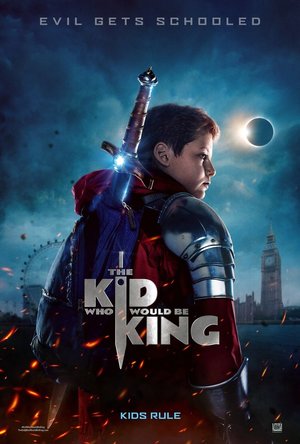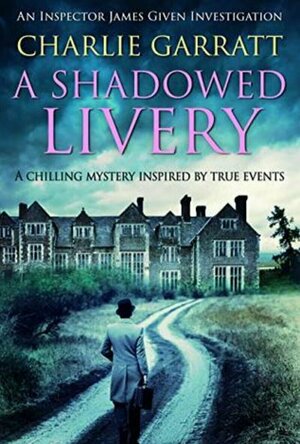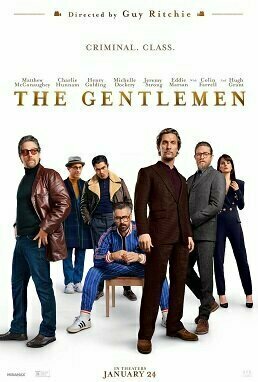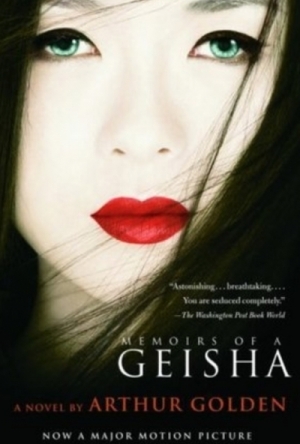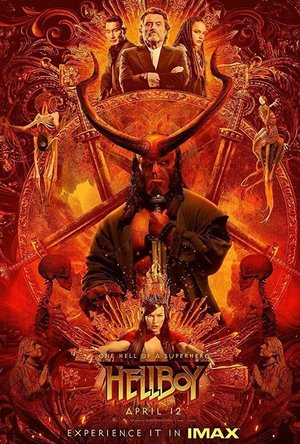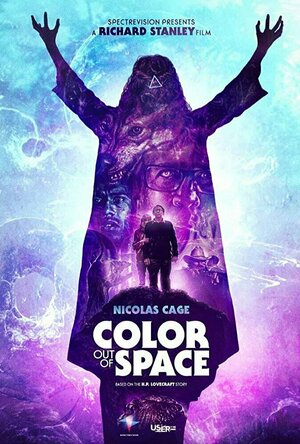Search
Lee (2222 KP) rated The Kid Who Would Be King (2019) in Movies
Feb 18, 2019
We've had plenty of spins on the legend of King Arthur over the years. Probably the most enjoyable for me was BBC show 'Merlin', which ran for 5 seasons between 2008 and 2012, focusing on the early life of the famous sorcerer and King Arthur. Probably the worst take on it all was Guy Ritchie's god awful 'Legend Of The Sword' back in 2017. Joe Cornish, writer/director of the brilliant 2011 movie 'Attack The Block', follows that movie with a fresh spin of his own in 'The Kid Who Would Be King'.
For those of us who are unfamiliar with the legend of Arthur, or who had it's memory tarnished by Mr Guy Ritchie, it's recapped for us here in a nice little animated sequence right at the start of the movie. It tells how the evil Morgana was banished to the underworld, vowing to return once more when the world is again divided and at its weakest.
We then join Alex (played by Louis Serkis, son of Andy Serkis), a 12 year old schoolboy living with his mother. He's having some trouble with bullies at school, made worse by his attempts to stand up to them as they terrorise his friend Bedders. One night, while fleeing from bullies Lance and Kay, he stumbles into a building site where he discovers a sword set in stone. He manages to pull it free and takes it home in his backpack, where he and Bedders determine that the sword is in fact the legendary Excalibur.
The next day a mysterious new boy joins them at school. Turns out, he is in fact Merlin, taking the form of a younger boy. He informs Alex and Bedders that they must form a team of knights in order to prepare for the imminent return of Morgana and her army of dead soldiers. They have just 4 days, with her arrival taking place during an upcoming solar eclipse. If they cannot stop her, then she will enslave the Earths inhabitants.
Alex believes that his father is key to all of this, and that he is in fact descended from Arthur, so he decides to go on a quest to Tintagel, the last place that he saw his father. Alex leaves a note for his mum - "Gone on quest to save Britain, don’t worry!” and begins 'knighting' Bedders, and eventually bullies Lance and Kay, as only those that have been knighted are able to see and fight the dead soldiers that come at night.
Their journey takes them via coach, through a portal at Stone Henge, and on a trek across the English countryside where they stop to allow Merlin time to provide them with the sword training they need in order to stand any chance of defeating Morgana. Merlin regularly changes his form, switching between young boy, an owl and his true elderly self (played by Patrick Stewart). In the form of a boy, Merlin is a little bit wacky, performing his magic with a series of clicking hand movements, something which became very annoying for me after the first few times. I get that this is a story about kids banding together and overcoming evil, but part of me just wishes that Merlin had stayed in his adult form of Patrick Stewart as I really wasn't so keen on the younger version at all.
It's also around this time, for a fairly lengthy period in the middle, that I felt the movie slowed and struggled a little. Thankfully though, things improved considerably for the final act, pulling everything together and delivering a hugely enjoyable finale. As the solar eclipse plunges their school into darkness, an army of armour clad school children battle the flame engulfed skeletal warriors and attempt to defeat the dragon-like Morgana. It's the kind of movie you'd love to watch as a child - no adults, just the kids rising up and overpowering evil. In fact, my daughter enjoyed this a lot more than I did, offering up her own 4.5 rating, so there you go!
I would have liked a little more from the great Patrick Stewart, and Rebecca Ferguson as Morgana isn't quite evil enough for me, but overall this is a really fun family movie and that's largely down to it's young stars, who are all fantastic. As shown in Attack the Block, Joe Cornish has a real skill for blending the ordinary with the fantastical and empowering his young characters with the traits of a hero or a leader.
For those of us who are unfamiliar with the legend of Arthur, or who had it's memory tarnished by Mr Guy Ritchie, it's recapped for us here in a nice little animated sequence right at the start of the movie. It tells how the evil Morgana was banished to the underworld, vowing to return once more when the world is again divided and at its weakest.
We then join Alex (played by Louis Serkis, son of Andy Serkis), a 12 year old schoolboy living with his mother. He's having some trouble with bullies at school, made worse by his attempts to stand up to them as they terrorise his friend Bedders. One night, while fleeing from bullies Lance and Kay, he stumbles into a building site where he discovers a sword set in stone. He manages to pull it free and takes it home in his backpack, where he and Bedders determine that the sword is in fact the legendary Excalibur.
The next day a mysterious new boy joins them at school. Turns out, he is in fact Merlin, taking the form of a younger boy. He informs Alex and Bedders that they must form a team of knights in order to prepare for the imminent return of Morgana and her army of dead soldiers. They have just 4 days, with her arrival taking place during an upcoming solar eclipse. If they cannot stop her, then she will enslave the Earths inhabitants.
Alex believes that his father is key to all of this, and that he is in fact descended from Arthur, so he decides to go on a quest to Tintagel, the last place that he saw his father. Alex leaves a note for his mum - "Gone on quest to save Britain, don’t worry!” and begins 'knighting' Bedders, and eventually bullies Lance and Kay, as only those that have been knighted are able to see and fight the dead soldiers that come at night.
Their journey takes them via coach, through a portal at Stone Henge, and on a trek across the English countryside where they stop to allow Merlin time to provide them with the sword training they need in order to stand any chance of defeating Morgana. Merlin regularly changes his form, switching between young boy, an owl and his true elderly self (played by Patrick Stewart). In the form of a boy, Merlin is a little bit wacky, performing his magic with a series of clicking hand movements, something which became very annoying for me after the first few times. I get that this is a story about kids banding together and overcoming evil, but part of me just wishes that Merlin had stayed in his adult form of Patrick Stewart as I really wasn't so keen on the younger version at all.
It's also around this time, for a fairly lengthy period in the middle, that I felt the movie slowed and struggled a little. Thankfully though, things improved considerably for the final act, pulling everything together and delivering a hugely enjoyable finale. As the solar eclipse plunges their school into darkness, an army of armour clad school children battle the flame engulfed skeletal warriors and attempt to defeat the dragon-like Morgana. It's the kind of movie you'd love to watch as a child - no adults, just the kids rising up and overpowering evil. In fact, my daughter enjoyed this a lot more than I did, offering up her own 4.5 rating, so there you go!
I would have liked a little more from the great Patrick Stewart, and Rebecca Ferguson as Morgana isn't quite evil enough for me, but overall this is a really fun family movie and that's largely down to it's young stars, who are all fantastic. As shown in Attack the Block, Joe Cornish has a real skill for blending the ordinary with the fantastical and empowering his young characters with the traits of a hero or a leader.
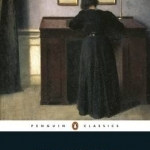
Villette
Charlotte Brontë and Helen Cooper
Book
Villette is Charlotte Bronte's powerful autobiographical novel of one woman's search for true love,...

Brideshead Revisited: The Sacred and Profane Memories of Captain Charles Ryder: Sacred and Profane Memories of Captain Charles Ryder
Book
Brideshead Revisited is Evelyn Waugh's stunning novel of duty and desire set amongst the decadent,...
ClareR (5879 KP) rated A Shadowed Livery (Inspector James Given Investigations #1) in Books
Sep 16, 2019
A really well written police procedural
A Shadowed Livery is a police procedural very much in the vein of an Agatha Christie novel. It’s set in 1938, just as the rumblings of war begin and National Socialism and Fascism raise their heads in Germany. DI James Givens has been pulled off the case that he was working on (the murder of a Jewish butcher - the guilty men have been hanged, but there’s still work to be done) and sent to a small village in the English countryside, to wrap up the deaths of three people (mother, son and fiancée) at Grovestock House, where Sir Arthur Barleigh and his family live. DI Given has been told that it’s a simple case of murder/ suicide, but of course it develops into anything but that.
I very much enjoyed this - the style in which it was written felt just right for the time period, and there was great attention to detail. I liked how Given’s background is revealed as the story progresses, and how relevant it was to the time in history.
The mystery itself had me guessing up to the end, and it has a great ending! I love it when I’m kept guessing to the final pages. DI Given is a very likeable character, if a little naive in some ways - but that’s rather nice really. It lends him that human touch.
I’ll be interested to see what happens in the second book as we edge closer to war. I’d like to see how DI Given gets on!
Many thanks to Sapere Books for my copy of this book to read and review. I will be preordering the next book for when it comes out next month (October 2019)!
I very much enjoyed this - the style in which it was written felt just right for the time period, and there was great attention to detail. I liked how Given’s background is revealed as the story progresses, and how relevant it was to the time in history.
The mystery itself had me guessing up to the end, and it has a great ending! I love it when I’m kept guessing to the final pages. DI Given is a very likeable character, if a little naive in some ways - but that’s rather nice really. It lends him that human touch.
I’ll be interested to see what happens in the second book as we edge closer to war. I’d like to see how DI Given gets on!
Many thanks to Sapere Books for my copy of this book to read and review. I will be preordering the next book for when it comes out next month (October 2019)!
JT (287 KP) rated The Gentlemen (2020) in Movies
Mar 3, 2020
Guy Richie back to doing what he does best (1 more)
Excellent cast
Twists, turns and carnage
Since Snatch Guy Richie hasn’t covered himself in glory with some of his recent films. The likes of Swept Away, Revolver and King Arthur: Legend of the Sword did little to enhance his street cred.
While Sherlock Holmes and The Man From U.N.C.L.E were certainly enjoyable romps they didn’t have the cutting edge to what Richie does best, the gangster flick. Thankfully The Gentlemen provides everything you could want from that genre and Richie is back on familiar ground.
Mickey Pearson (Matthew McConaughey) is looking to retire from his current criminal life and plans to sell off his highly profitable marijuana empire in London. However, when rival gangs get wind of his plans there is blackmail, bribery and double-crossing aplenty.
One of the stars of the film is Hugh Grant, who for once is not playing a bumbling English gentry. Instead, he plays a slimy cockney called Fletcher with inside knowledge of what Mickey’s plans are and attempts to use them for his own financial gain.
Grant adds a subtle level of humour to the proceedings and spends most of the time in dialogue with Ray (Charlie Hunnam) Mickey’s right-hand man, who actually delivers a half-decent performance.
The Gentlemen has Richie’s aggressive dialogue which is bathed in neat action set pieces. It’s foul-mouthed and the characters all have their own unique and very distinct personalities. From Colin Farrell’s Coach to Henry Golding’s psychotic Dry Eye they can stand happily alongside some of the greats from Lock, Stock and Two Smoking Barrels and Snatch.
The film has a cool swagger about it where everything clicks nicely. There are a few twists and turns along the way which is expected from the British director and it is filled with his trademarks that hit the right notes at the right time. For me, this is by far and away his best film for quite some time.
While Sherlock Holmes and The Man From U.N.C.L.E were certainly enjoyable romps they didn’t have the cutting edge to what Richie does best, the gangster flick. Thankfully The Gentlemen provides everything you could want from that genre and Richie is back on familiar ground.
Mickey Pearson (Matthew McConaughey) is looking to retire from his current criminal life and plans to sell off his highly profitable marijuana empire in London. However, when rival gangs get wind of his plans there is blackmail, bribery and double-crossing aplenty.
One of the stars of the film is Hugh Grant, who for once is not playing a bumbling English gentry. Instead, he plays a slimy cockney called Fletcher with inside knowledge of what Mickey’s plans are and attempts to use them for his own financial gain.
Grant adds a subtle level of humour to the proceedings and spends most of the time in dialogue with Ray (Charlie Hunnam) Mickey’s right-hand man, who actually delivers a half-decent performance.
The Gentlemen has Richie’s aggressive dialogue which is bathed in neat action set pieces. It’s foul-mouthed and the characters all have their own unique and very distinct personalities. From Colin Farrell’s Coach to Henry Golding’s psychotic Dry Eye they can stand happily alongside some of the greats from Lock, Stock and Two Smoking Barrels and Snatch.
The film has a cool swagger about it where everything clicks nicely. There are a few twists and turns along the way which is expected from the British director and it is filled with his trademarks that hit the right notes at the right time. For me, this is by far and away his best film for quite some time.
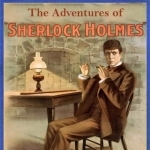
The Adventures of Sherlock Holmes by Sir Arthur Conan Doyle
Podcast
A concoction of twelve stories, The Adventures of Sherlock Holmes is the third book in the original...
The Bandersnatch (199 KP) rated Memoirs of a Geisha in Books
Nov 7, 2019
Memoirs of a Geisha is a historical fiction book published on September 27th 1997. Told in the first person Viewpoint of Geisha Sayuri (Original name Chiyo), It follows her journey from her childhood in a fishing village on the coast of Japan, forcibly taken to a Hanamachi in Gion Kyoto and raised to become a Geisha before experiencing the horrors of WW2 and being a Geisha during the hard work of rebuilding after a harrowing defeat.
My opinion of the book is one of both curiosity and interest. Japan is one of those countries where its history and culture is both unusual and mysterious. The book gives a brief glimpse into the hidden world of the Geisha which are a prominent spot in Japanese culture but are relatively unknown world wide. I believe that the story of Sayuri is one of personal travel and evolution. Since we see Sayuri';s experience as a child before becoming a Geisha, experiencing the horror of war and eventually finding love with the Chairman.
Arthur Golden was born on December 6th 1956 in Chattanooga, Tennessee. When he was eight years old his parents divorced with his father dying five years later. He spent most of his childhood living in lookout mountain, Georgia before graduating from the Baylor school in Chattanooga in 1974. After earning a degree in Fine art (Specifically Japanese art), an M. A. in Japanese history, Golden spent a summer at the Peking University in Beijing and spent some time working in Tokyo. When he returned to the states he earned an M. A. in English at Boston University. Golden married Trudi Legge and they went on to have two children Hays and Tess.
After getting the initial idea for Memoirs of a Geisha Golden spent six years over the story rewriting it at least three times, changing the view point until settling on the viewpoint of Sayuri. Golden had spent time interviewing several Geisha including Mineko Iwasaki (who ended up suing Golden when the Japanese version of the book came out for breach of contract.....the case was settled out of court in 2003) all of whom provided information about the world of the Geisha. After its release Memoirs of a Geisha spent two years on the New York Times bestseller list, its sold more than four million copies in English alone and has been translated into thirty-two languages around the world. In 2005 the book was made into a movie garnering three academy awards.
My opinion of Arthur Golden is very small and somewhat limited.......I believe he is a fantastic writer and very knowledgeable about Japanese history and art....Much more so than I am but hearing he faced being sued because of citing who his sources were when he was contracted not to has put something of a dampener on his character in my eyes.
Memoirs of a Geisha was released as a Movie on December 9th 2005 under director Rob Marshall and Produced by Steven Spielberg's production Company Amblin Entertainment and Spyglass Entertainment. With its production from pre- to post-production taking place mainly in California US, with a few spots filmed in Kyoto Japan. The movie received mixed reviews in the western world and received somewhat negative reviews in Japan due to its mixed casting of Chinese and Japanese actors and actresses and its relationship to history. Despite the chaos they won three Academy Awards (Best Art Direction, Best Cinematography and Best Costume Design), a Golden Globe (Best Original Score), A national Board of review (Best Supporting Actress), a satellite award (Outstanding screenplay) and three BAFTA's (Cinematography, Costume design and the Anthony Asquith award for Achievement in film music).
Whilst I quite like the movie I definitely feel that if more effort was put into tying more of both Japanese and Geisha history was some how tied into the movie. As well as using more Japanese Actors and actresses in the roles......despite that I believe the actors and actresses did a very good job in brining the script to life and keep a layer of mystery and fluidity to their roles.
And there you have it a book for all the ages, its definitely under the banner of AWESOME!!!.
My opinion of the book is one of both curiosity and interest. Japan is one of those countries where its history and culture is both unusual and mysterious. The book gives a brief glimpse into the hidden world of the Geisha which are a prominent spot in Japanese culture but are relatively unknown world wide. I believe that the story of Sayuri is one of personal travel and evolution. Since we see Sayuri';s experience as a child before becoming a Geisha, experiencing the horror of war and eventually finding love with the Chairman.
Arthur Golden was born on December 6th 1956 in Chattanooga, Tennessee. When he was eight years old his parents divorced with his father dying five years later. He spent most of his childhood living in lookout mountain, Georgia before graduating from the Baylor school in Chattanooga in 1974. After earning a degree in Fine art (Specifically Japanese art), an M. A. in Japanese history, Golden spent a summer at the Peking University in Beijing and spent some time working in Tokyo. When he returned to the states he earned an M. A. in English at Boston University. Golden married Trudi Legge and they went on to have two children Hays and Tess.
After getting the initial idea for Memoirs of a Geisha Golden spent six years over the story rewriting it at least three times, changing the view point until settling on the viewpoint of Sayuri. Golden had spent time interviewing several Geisha including Mineko Iwasaki (who ended up suing Golden when the Japanese version of the book came out for breach of contract.....the case was settled out of court in 2003) all of whom provided information about the world of the Geisha. After its release Memoirs of a Geisha spent two years on the New York Times bestseller list, its sold more than four million copies in English alone and has been translated into thirty-two languages around the world. In 2005 the book was made into a movie garnering three academy awards.
My opinion of Arthur Golden is very small and somewhat limited.......I believe he is a fantastic writer and very knowledgeable about Japanese history and art....Much more so than I am but hearing he faced being sued because of citing who his sources were when he was contracted not to has put something of a dampener on his character in my eyes.
Memoirs of a Geisha was released as a Movie on December 9th 2005 under director Rob Marshall and Produced by Steven Spielberg's production Company Amblin Entertainment and Spyglass Entertainment. With its production from pre- to post-production taking place mainly in California US, with a few spots filmed in Kyoto Japan. The movie received mixed reviews in the western world and received somewhat negative reviews in Japan due to its mixed casting of Chinese and Japanese actors and actresses and its relationship to history. Despite the chaos they won three Academy Awards (Best Art Direction, Best Cinematography and Best Costume Design), a Golden Globe (Best Original Score), A national Board of review (Best Supporting Actress), a satellite award (Outstanding screenplay) and three BAFTA's (Cinematography, Costume design and the Anthony Asquith award for Achievement in film music).
Whilst I quite like the movie I definitely feel that if more effort was put into tying more of both Japanese and Geisha history was some how tied into the movie. As well as using more Japanese Actors and actresses in the roles......despite that I believe the actors and actresses did a very good job in brining the script to life and keep a layer of mystery and fluidity to their roles.
And there you have it a book for all the ages, its definitely under the banner of AWESOME!!!.
Sarah (7800 KP) rated Hellboy (2019) in Movies
Dec 31, 2019
Why?!
I know the original Hellboy films didn’t do well critically, but they got a fairly decent fan following and I personally loved them, so I really didn’t see why they wanted to remake it. And after watching this disaster, I definitely cannot understand why they bothered to remake it!
I’ll start with the good bits, which won’t take long as David Harbour and Ian McShane are pretty much the only decent things about this film. Ian McShane seems to be playing his usual charismatic, crazy old man character (very reminiscent of Mr Wednesday) and I’m not complaining, as this is exactly what I love about him and he’s a rather good less nice version of Professor Broom. And David Harbour is a good Hellboy and gets the very few laughs there is in this, although I think he’s very let down and not able to shine properly because of the dodgy script and just general terribleness of this film. There’s also a decent rock soundtrack accompanying the fight scenes and a fairly fun amount of gore.
And now the bad. There’s far too much cgi in this and it isn’t always good, and they should’ve toned this down a lot. The plot and progression of the entire story is just bizarre, it was just downright ridiculous. They seem to have decided to try and fit in a strange assortment of folk tales and historic legends, like the Pendle Hill witches and King Arthur, and this is alongside the already crazy (but just about believable) origin of Hellboy himself and the Nazis. Even the bad guys in this are cheesy and not particularly threatening - Milla Jovovich with a horrendous English accent and a pig creature with a Scouse accent?! I know Stephen Graham is from Liverpool but that accent on that particular character was possible the most bizarre and frustrating thing I’ve ever seen. And also despite the main lead up being slightly different, the end result to Hellboy personally is exactly the same as the original. Why not try and come up with something completely different to avoid yet more negative comparisons to the original?
This is one film that should never have seen the light of day.
I’ll start with the good bits, which won’t take long as David Harbour and Ian McShane are pretty much the only decent things about this film. Ian McShane seems to be playing his usual charismatic, crazy old man character (very reminiscent of Mr Wednesday) and I’m not complaining, as this is exactly what I love about him and he’s a rather good less nice version of Professor Broom. And David Harbour is a good Hellboy and gets the very few laughs there is in this, although I think he’s very let down and not able to shine properly because of the dodgy script and just general terribleness of this film. There’s also a decent rock soundtrack accompanying the fight scenes and a fairly fun amount of gore.
And now the bad. There’s far too much cgi in this and it isn’t always good, and they should’ve toned this down a lot. The plot and progression of the entire story is just bizarre, it was just downright ridiculous. They seem to have decided to try and fit in a strange assortment of folk tales and historic legends, like the Pendle Hill witches and King Arthur, and this is alongside the already crazy (but just about believable) origin of Hellboy himself and the Nazis. Even the bad guys in this are cheesy and not particularly threatening - Milla Jovovich with a horrendous English accent and a pig creature with a Scouse accent?! I know Stephen Graham is from Liverpool but that accent on that particular character was possible the most bizarre and frustrating thing I’ve ever seen. And also despite the main lead up being slightly different, the end result to Hellboy personally is exactly the same as the original. Why not try and come up with something completely different to avoid yet more negative comparisons to the original?
This is one film that should never have seen the light of day.
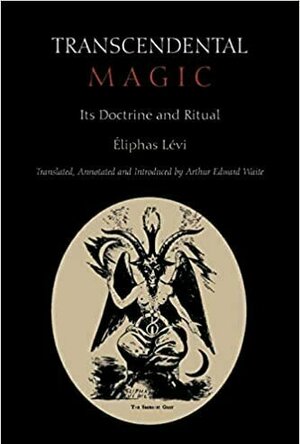
Transcendental Magic, Its Doctrine and Ritual
Book
2011 Reprint of 1958 London Edition. Full facsimile of the original edition, not reproduced with...
Jesters_folly (230 KP) rated Color Out of Space (2019) in Movies
Nov 10, 2020
Contains spoilers, click to show
Color out of Space Is a film based on a H.P. Lovecraft staring Nicholas Cage so you know it's going to be weird.
So, tell me if you've heard this one before. A meteor lands on an isolated farm and the farmer and his family have to fight off what it brought with it. If this sound familiar then that because it's been used so often it's become a common Sci-Fi trope but, all tropes have to come from somewhere and the works of Lovecraft have interwoven themselves into many modern works. I mention this because, as well as it's main premise, there are a lot of familiar scenes and concepts. You see creatures that remind you of the 'Thing' and transformations reminiscent of the original 'Quatermass Experiment' as well as creepy kids and a well but you have to remember that Color out of Space is most likely the source material and not the other way round (The Thing it's self is filled with Lovecraftian ideas even though it's based on a story by different author.)
As the films title hints, the actual creature is a color (or Colour if you're English) which is a strange concept in its self and the effects it has on the world around it only unfold slowly but, like in the other films I've mentioned, they end in horror (and body horror).
The theme of colour, even in it's strange use here, leads to the film being pretty in parts and as the film goes on the landscape takes on eerie life of it's own very much like the Martian weed taking over London in 'War of the Worlds'.
The film it's self is odd, you keep expecting the main family to be one of those stereotypical dysfunctional family's but, every time they seem to falling apart they pull together and, even their decent into madness doesn't pull them apart. The whole thing is made even strange by Nicholas Cage who is his usual, over the top self; Throwing tantrums and monologing to people who aren't really there, although, I'm happy to say his performance is not as OTT as it was in 'Mandy' where he went full Cage (which was great for that film but Color out of space is slightly more subdued, slightly but not much.)
There is blood but most of the horror either happens off screen or is just implied and even the monsters are just there just to be seen, although they do have a point to the story.
Color out of Space is a good but slightly strange cosmic horror with Nicholas Cage being as strange as usual aided in his strangeness by Madeleine Arthur, playing his daughter, Lavinia. with the exception of Tommy Chong's Ezra the rest of the cast play it mostly straight.
So, tell me if you've heard this one before. A meteor lands on an isolated farm and the farmer and his family have to fight off what it brought with it. If this sound familiar then that because it's been used so often it's become a common Sci-Fi trope but, all tropes have to come from somewhere and the works of Lovecraft have interwoven themselves into many modern works. I mention this because, as well as it's main premise, there are a lot of familiar scenes and concepts. You see creatures that remind you of the 'Thing' and transformations reminiscent of the original 'Quatermass Experiment' as well as creepy kids and a well but you have to remember that Color out of Space is most likely the source material and not the other way round (The Thing it's self is filled with Lovecraftian ideas even though it's based on a story by different author.)
As the films title hints, the actual creature is a color (or Colour if you're English) which is a strange concept in its self and the effects it has on the world around it only unfold slowly but, like in the other films I've mentioned, they end in horror (and body horror).
The theme of colour, even in it's strange use here, leads to the film being pretty in parts and as the film goes on the landscape takes on eerie life of it's own very much like the Martian weed taking over London in 'War of the Worlds'.
The film it's self is odd, you keep expecting the main family to be one of those stereotypical dysfunctional family's but, every time they seem to falling apart they pull together and, even their decent into madness doesn't pull them apart. The whole thing is made even strange by Nicholas Cage who is his usual, over the top self; Throwing tantrums and monologing to people who aren't really there, although, I'm happy to say his performance is not as OTT as it was in 'Mandy' where he went full Cage (which was great for that film but Color out of space is slightly more subdued, slightly but not much.)
There is blood but most of the horror either happens off screen or is just implied and even the monsters are just there just to be seen, although they do have a point to the story.
Color out of Space is a good but slightly strange cosmic horror with Nicholas Cage being as strange as usual aided in his strangeness by Madeleine Arthur, playing his daughter, Lavinia. with the exception of Tommy Chong's Ezra the rest of the cast play it mostly straight.
